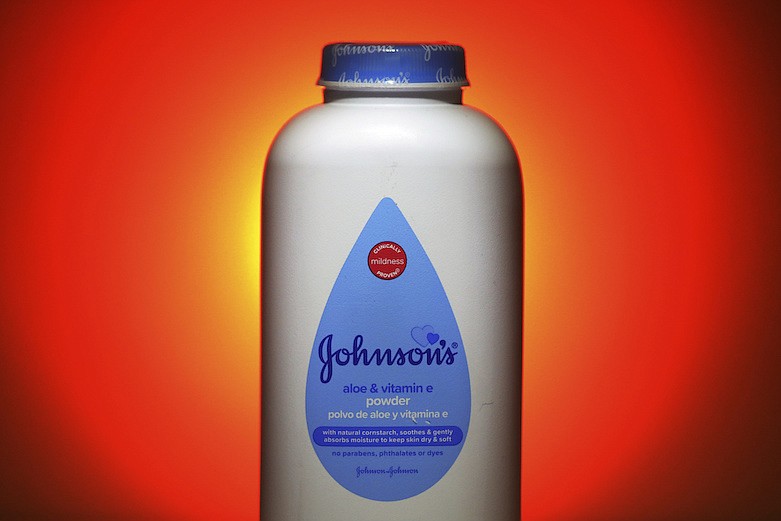Johnson & Johnson is discontinuing North American sales of baby powder made with talc, a product at the center of nearly 20,000 lawsuits filed by cancer patients.
The company said Tuesday that it would wind down sales over the next few months, allowing existing bottles to be sold by retailers until they run out. Baby powder made with cornstarch will remain available, and talc-based baby powder will continue to be sold in other parts of the world.
The decision stemmed from a move in March to stop shipping hundreds of items to the United States and Canada so that it can prioritize products with greater demand and allow safer conditions in manufacturing and distribution facilities, the company said.
But it is a huge concession for the company, which has for more than a century promoted its baby powder as pure and gentle enough for babies' bottoms, a symbol of its corporate commitment to maternal and child health.
France: Amazon back in business after virus deal with unions
PARIS (AP) - Amazon is gradually reopening its warehouses in France after working out virus safety measures with unions, in an effort to end weeks of legal troubles that had sharply curtailed the company's French business and drawn worldwide attention.
In a victory for labor unions, French courts ruled last month that Amazon hadn't done enough to protect thousands of French workers from the coronavirus. The world's largest online retailer shut its six French warehouses as a result – just as global demand soared because stores were shuttered by virus restrictions.
After protracted negotiations, Amazon started a three-week reopening process Tuesday.
"It's a big victory for Amazon workers in France," as well as for others who have complained about poor virus protections, said Stephane Enjalran, national secretary of France's Sud Solidaire Union, which led the legal proceedings as the largest union at Amazon.
French unions have been in touch with Amazon workers in the U.S., Italy, Poland and beyond, Enjalran told The Associated Press. He expressed hope that the French court rulings could encourage them - or workers at other companies in France - to demand better virus safety.
Amazon said that all necessary measures had already been in place before the temporary shutdown, and that it has made no major changes since then. "Our sites are safe, and always have been safe," it said in a statement.
Unions dispute that, saying the company took weeks to supply masks and gel to workers, and flouted the stringent French union consultation process. They say Amazon didn't do enough to enforce social distancing, to ensure that turnstiles and personal storage areas were virus-free, or to increase cleaning of its warehouses – and two French courts agreed.
New safety measures at the French warehouses include tougher social distancing rules, monitoring by a new independent expert and sweeping changes to the logistical chain to reduce the number of people allowed to work in the same place at the same time, Enjalran said.
"The most important thing is that there is a dialogue between management and workers that didn't happen before," he said.
Walmart becomes a pandemic lifeline, online sales surge 74%
NEW YORK (AP) - Walmart emerged as one of the few lifelines to millions of people as the coronavirus spread, leading to surging profit and sales for the world's largest retailer.
Online sales in the U.S. jumped 74% for its fiscal first quarter that ended April 30, which captured the brunt of the pandemic's outbreak. Same-store sales rose 10% at U.S. Walmart stores on strong sales of food, health and wellness goods.
At a time when a huge swath of stores that sell non-essential merchandise temporarily shut down, Walmart has the natural advantage of carrying the very items that consumers need during a pandemic.
But unlike its online rivals like Amazon, Walmart enjoys an extensive network of nearly 5,000 physical stores and a variety of delivery and pick-up options that it ramped up to meet crushing demand for essential items, from paper towels to canned food. Walmart's reputation for low prices also helped as the unemployment rate has spiraled to the high level since the Great Depression.
"Having a wide range of fulfillment options, including delivery to home, collection from store - and by using stores for fulfillment - allowed Walmart to ramp up capacity in a way that many other players struggled to do," said Neil Saunders, managing director at GlobalData Retail. "We also believe that by using stores effectively, Walmart mitigated some of the higher costs associated with the online channel."
Walmart shoppers did not limit their purchases to just essential items, using their federal stimulus checks to buy clothing, TVs and video games, which helped boost sales in April. Walmart also said it's seeing gains in new customers from across all income brackets.
At the same time, company, which is based in Bentonville, Arkansa, had trouble keeping its shelves stocked and its inventory fell 6.1%. Costs soared as well, to the tune of $900 million - all of it related to the pandemic.
Cash bonuses were issued to all hourly workers and Walmart upped pay by $2 per hour at its warehouses. It rolled out an emergency leave policy and spent money on shields at checkout lines. Still, it reported a higher operating profit.
Walmart pulled its guidance for the year, citing the chaos of the pandemic. It also pulled the plug on Jet.com, an online startup that it bought for more than $3 billion in 2016 as it sought to ramp up online operations to compete with Amazon.
